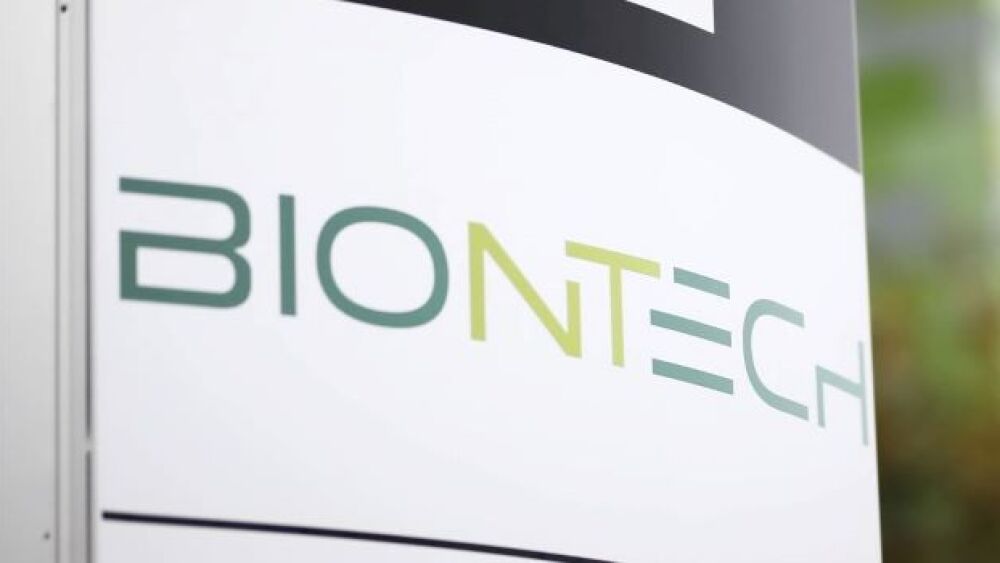BioNTech indicates the acquisition will add production capacity in support of U.S. clinical trials.
Abdulhamid Hosbas/Anadolu Agency via Getty Images
Germany’s BioNTech announced it is acquiring Kite’s solid tumor neoantigen T-cell receptor (TCR) research-and-development platform and its clinical manufacturing plant in Gaithersburg, Maryland. Kite is a Gilead company.
The company is best known for its mRNA COVID-19 vaccine it developed with Pfizer. However, much of BioNTech’s pipeline is focused on using mRNA for cancer applications.
BioNTech indicates the acquisition will add production capacity in support of U.S. clinical trials. It already has a cell therapy manufacturing site in Idar-Oberstein, Germany.
The company’s pipeline includes cancer product candidates built on its CAR-T cell amplifying mRNA vaccine (CARVac) and NEOSTIM platforms in addition to the newly acquired individualized neoantigen TCR program.
“The development of individualized cancer therapies is at the core of our work at BioNTech,” said BioNTech CEO and co-founder Ugur Sahin. “It also strengthens our presence in the U.S., building on our successful integration of adoptive T-cell and neoantigen TCR therapies as part of our acquisition of Neon Therapeutics last year.”
BioNTech picked up Neon Therapeutics in an all-stock deal worth $67 million in January 2020. Neon’s focus is on neoantigen therapies for both vaccines and T-cell therapies.
Neoantigens are immune targets created by mutations inherent in tumors. Neon’s most advanced program was NEO-PTC-01, a personalized neoantigen-targeted T-cell therapy.
BioNTech’s pipeline includes BNT111 for advanced melanoma, currently in Phase II studies; BBNT112 in Phase I/II for metastatic Castration Resistant Prostate Cancer (mCRPC); and BNT113, also in Phase I studies for HPV16+ head and neck cancer, and approximately 11 others in clinical trials and more in preclinical development.
On June 18, BioNTech treated the first patient in its BNT111 Phase II trial. It is testing BNT111 in combination with Libtayo (cemiplimab) in anti-PD1-refractory/relapsed unresectable Stage III or IV melanoma. It is being run in collaboration with Regeneron Pharmaceuticals. BNT111 is an intravenous cancer vaccine that uses mRNA to encode four cancer-specific antigens. Libtayo is Regeneron and Sanofi’s anti-PD-1 checkpoint inhibitor.
“Our vision is to harness the power of the immune system against cancer and infectious diseases,” said Özelm Türeci, co-founder and chief medical officer of BioNTech at the time. “We were able to demonstrate the potential of mRNA vaccines in addressing COVID-19. We must not forget that cancer is also a global health threat, even worse than the current pandemic.”
“BNT111 has already shown a favorable safety profile and encouraging preliminary results in early clinical evaluation. With the start of patient treatment in our Phase II trial, we are encouraged to continue on our initial path to realize the potential of mRNA vaccines for cancer patients,” she continued.
Any Kite staffers working at the Gaithersburg facility will be offered employment with BioNTech. The company also indicates it plans to invest more in the location, including hiring more people. Kite has a new manufacturing site in Frederick, Maryland, to manufacture CAR T-cell therapies that are not part of this deal.
“In order to serve more patients that need cell therapy today, Kite is rapidly growing both through global expansion and seeking new indications for our existing approved CAR T-cell therapies,” said Christi Shaw, chief executive officer of Kite. “This transaction will enable us to focus our energies and investment on accelerating the reach of our current CAR-T-cell therapies and midterm pipeline.”





